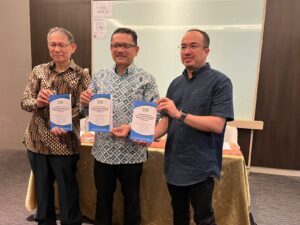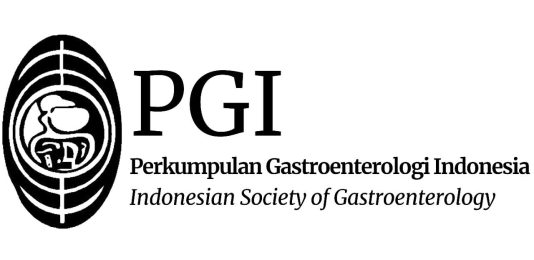
Jakarta, December 15, 2024 – The Indonesian Society of Gastroenterology (ISG) officially launched the 2024 Consensus on the Management of Diarrhea in Adults in Indonesia. This new guideline aims to provide updated recommendations for healthcare professionals across the country in addressing adult diarrhea cases, particularly amidst the ever-evolving healthcare challenges.
The president of ISG, Prof. Ari Fahrial Syam, MD, MMB, PhD, FACP, FACG, who also serves as the Dean of the Faculty of Medicine, Universitas Indonesia, emphasized that the launch of this consensus reflects ISG’s commitment to continuously updating information in the field of gastroenterology.
“Diarrhea is one of the most common diseases in the community. This guideline is expected to assist doctors in providing optimal management to reduce the incidence of diarrhea in Indonesia,” explained Prof. Ari Fahrial Syam.
According to the 2023 Indonesian Health Survey (SKI), diarrhea cases across all age groups reached 4.3% in Indonesia, with individuals aged over 75 years showing the highest prevalence at 5.1%. Entering the rainy season, diarrhea cases are likely to rise, especially in densely populated areas and flood-affected regions. “It is crucial to maintain good hygiene during the rainy season. Make sure your hands are clean before eating, and wash food thoroughly to prevent diarrhea, as sanitation is key,” advised Prof. Marcellus Simadibrata, MD, PhD, FACG, FASGE, a gastroenterology expert.
Syndromic Testing: A Rapid and Accurate Approach to Pathogen Identification
Diagnostic technologies for diarrhea have advanced significantly, particularly with the advent of multiplex stool polymerase chain reaction (PCR) methods. Multiplex stool PCR testing is highly recommended for patients with chronic, persistent, or acute diarrhea to enable specific pathogen identification.
According to Dr. Hasan Maulahela, Secretary General of ISG, this technology is particularly beneficial for patients with compromised immune systems. “In immunocompromised patients, certain bacteria that are harmless in normal populations can become pathogenic. Specific pathogen detection is essential to avoid unnecessary antibiotic use,” he stated.
Syndromic testing addresses this need by utilizing multiplex PCR to simultaneously detect up to 23 pathogens. The cycle threshold (CT) value plays a critical role in diagnosing co-infections. This method offers rapid and accurate results, providing an alternative to traditional diagnostic approaches such as bacterial cultures and microscopy.
To promote the latest consensus, ISG hosted a webinar titled Expert Meeting on Modern Diagnostics in Diarrhea Management, attended by approximately 1,400 doctors from across Indonesia. This event aimed to ensure that healthcare professionals, including general practitioners, internal medicine specialists, and gastroenterology consultants, have access to the latest developments.
The webinar highlighted the importance of syndromic testing and CT-value analysis using the QIAstat-Dx tool in managing diarrhea. This initiative aligns with the vision of QIAGEN, a molecular diagnostics company collaborating with PGI. With the tagline “Making improvements in life possible”, QIAGEN continues to innovate and support advancements in healthcare services in Indonesia.
Prof. Ari Fahrial Syam remarked, “This testing represents a groundbreaking technology in diarrhea management. Therefore, together with gastroenterology experts across Indonesia, we have incorporated this advanced technology into the 2024 consensus guidelines.”
Through this collaboration, ISG hopes to improve the efficiency and effectiveness of healthcare services in Indonesia. ISG remains dedicated to updating its consensus in gastroenterology, aiming to deliver better healthcare outcomes for the Indonesian population.








